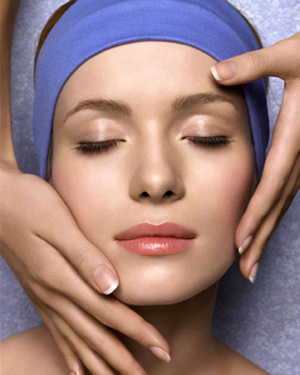Daily Archives: August 1, 2016
 If you want healthy skin, the best place to start is with a healthy lifestyle and an excellent skin care routine. Nutritious food, adequate sleep, regular facials and good quality skincare products are the building blocks for maintaining a glowing complexion that gets noticed. However, there is one often-overlooked factor in skin care that might be affecting the health of your skin—pollution.
If you want healthy skin, the best place to start is with a healthy lifestyle and an excellent skin care routine. Nutritious food, adequate sleep, regular facials and good quality skincare products are the building blocks for maintaining a glowing complexion that gets noticed. However, there is one often-overlooked factor in skin care that might be affecting the health of your skin—pollution.
Like it or not, pollution is a fact of modern life. When we talk about heavy pollution, many Asian cities come to mind. We have all seen images of people wearing masks to work every day in Beijing, Tokyo and Delhi. But the effects of toxic air are also being seen in many ways in western cities, like Paris, New York and London.
Closer to home, with the heat upon us in Los Angeles, the smog has returned and unfortunately, the fires. Plus, here in the southern part of California, we did not get the rain we anticipated earlier in the year, and that has added to the level of unfriendly particulates in the air. This toxicity is having a very detrimental effect on the quality of our lives here and worldwide.
The Bad News: The real culprits?
Traffic pollution is particularly bad for the skin. Tiny particles called PMs that contain nitrogen dioxide and other harmful chemicals have now been linked to cancer, wrinkles and aging. It has also been discovered that these particles can actually penetrate into the skin, stimulating the melanocytes which then produce an overabundance of pigment and brown spots. Additionally, there is evidence that toxins can increase the production of extra blood vessels which cause redness, irritation and rosacea. One final point to take into consideration is that pollution can actually heighten the intensity of UV light and cause even more damage to the skin tissue. Never have SPF’s and EPF’s been so important.
The Good News: What to do?
On the bright side, modern technology is not only helping us understand these issues but is coming up with some protective measures and great products we can use to neutralize the damage without all of us having to wear biohazard suits every time we step outside.
We need to get back to beauty basics in a serious way and that means paying great attention to our night-time rituals as well as our morning routine.
Double cleansing at night is now an absolute necessity in today’s polluted environment. A deep pore cleanser will remove the grime that builds on our skin during the day. Using two types of cleanser – an oil or cream based product before the deep pore formula – can ensure that every scrap of make-up is wiped off. This is very important if you are using mineral based make-up – which I love – but it can adhere to the skin more than traditional formulations.
Whatever routine you chose, make sure it is thorough. Adding a Clarisonic brush to your cleansing routine is very helpful. For sensitive skins I would recommend only 2-3 times a week; less sensitive, once a day. And I am a huge proponent of following with a toner. Toners re-establish the pH of the skin and prepare the way for hydration and treatment products. Night-time cremes and serums should be an area where you invest more time and money. Alternating products that contain Retin-A, hyaluronic acid, vitamin C and other anti-oxidants, peptides, ceramides, stem cells and AHA’s really makes a difference to how the skin ages but don’t overdue the exfoliating. We need to protect our skin barrier as much as possible these days and being over aggressive can create vulnerability to the environment. This is an area where your aesthetician can advise you and work out a routine that gets the best results.
Additional Tips:
Add Niacinamide – vitamin B3 – to your EPF ingredient list ( environmental protection factor.)
Switch to mineral cosmetics on top of your SPF to add an extra veil of protection during the day.
Use an air purifier at night to reduce indoor air pollution.
Change pillow cases at least twice weekly.
Continuing research will provide more ways to protect us from the damaging effects of pollution but taking steps now will make a big difference to how healthy our skin will be as we age.



